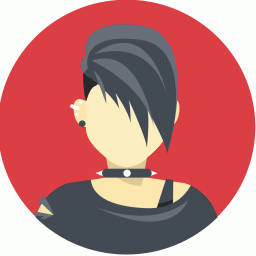阅读教给我的人生
时间:2022-05-04 02:17:28

Nature. Nurture. Novels. If you grew up preinternet―we’re talking the 70s and 80s (“the olden days”, as my daughter calls it) ―books brought you up, 1)exerting as much influence on who you were and who you became as anything, or anyone. My school friends and I, some bookish, others not, all read ourselves into being and navigated our way through the wilds of childhood and adolescence with 2)dog-eared novels as maps. There wasn’t much else to do. And you had to get your information from somewhere.
Parents―3)laissez-faire baby boomers(4)helicopter parenting hadn’t been invented)―weren’t particularly interested and, if asked, would usually send you off in the wrong direction, to the wrong bookshelf, to something dusty―“Oh, I loved Vanity Fair at your age!” ―not understanding our craving for fat books with silver-5)embossed covers, smelling of hormones and airports and America, page corners sticky from rereading, books that showed us dazzling new worlds―outside the suburb, beneath our skirts―and had all the best lines.
At a time when TV was rubbish, the local library was a refuge and a computer game meant 6)Pac Man, we read 7)ferociously, without cynicism or snobbery, inhabiting every page, dream readers―first as kids, then under the 8)duvet with a camping torch, then as young teens―and it influenced who we were, who we became.
It’s all still there: we are what we read. The current teen generation will leave behind a huge digital footprint―endless mortifying photos, videos, texts―but we left little, a few red-eyed snaps, some scratched 9)vinyl records and a long, beloved reading list spanning Malory Towers to Sweet Valley High, Adrian Mole to Anne of Green Gables.
At a time when talking to children about emotions was seen as largely unnecessary―“Nope, life’s not fair,”distracted parents would shrug―books filled in childhood’s lonelier gaps, made us feel better, a little more understood.
For sweet, brutal justice there was Roald Dahl―Veruca Salt had it coming. The sisterless had Little Women(“What would Jo do?”). For the fantasy of hearty sibling adventure on boats while we 10)squabbled in the landlocked shires, The Famous Five―although the best thing about Enid Blyton was that she was so 11)prolific, it meant you’d almost never run out of books. And if you were a 12)latchkey kid, there was the happy possibility of stumbling into your very own secret garden, a patch of the 13)rec behind the broken swing that could be yours, somewhere you could read undisturbed without being called a 14)swot. When things got really bad―bullied at school, forced to share the dampest, smallest bedroom with your most annoying brother―well, at least you weren’t at Gateshead Hall with poor Jane Eyre.
When 15)puberty hit, books could save your life, certainly save face. School sex education merged with worrying diagrams, forcing us to retreat to the warm bath of Judy Blume’s novels―Are You There God? It’s Me, Margaret and Forever in particular. If Blume knew what crushes and periods and being 13 felt like, Jilly Cooper knew all about the dizzying possibilities of a riding crop and studded our dreams with Rupert Campbell-Black. In a paragraph, Jackie Collins could transport us from a 16)grubby bunk bed to a Hollywood fourposter. While Shirley Conran, author of the unsurpassable Lace, introduced us to kick-ass career women.
Word of mouth was everything. If your best mate didn’t rate it, it probably wasn’t worth reading. It was always about the story and characters, never the author, who usually looked as dreary as any other grownup in the jacket photo and who, like your parents, somehow got in the way of the experience. Cult books were heatedly passed from one girl to another, dissected late into a sleepover, held above our heads as we sunbathed covered in baby-oil in parks, borrowed, “lost”, reluctantly returned. Infinitely precious, they would tell you things that even your 17)ballsiest big sister didn’t know, that your mother didn’t think you should know. So 18)subversive, they were thrillingly never stocked in the school library. Virginia Andrews’Flowers in the Attic was one, a brilliantly 19)implausible saga of an evil grandmother. Better still, it was part of a series, like all the best books. You could create collections. Nothing beat the sight of my sacred Andrews books―all bought with hard-earned newspaper round money―lined up on my bookshelf, in order.
We read “proper” literature too, not 20)giving a hoot about genres or critical acclaim, only about the book. It rocked or it didn’t. It was silent, or it spoke to us―still the best test I think. I read Jeanette Winterson’s Oranges Are Not the Only Fruit over and over, feeling forever changed by it. The Catcher in the Rye whispered in our ear, disruptively, like our cleverest, most cynical friend during assembly, crossing decades and continents: we knew all about 21)phonies after all. Anne Frank was a heroine: her voice leapt off the page. And who didn’t want to deliver a lemony 22)one liner like Elizabeth Bennet? Or wander the midsummer meadows in Dodie Smith’s I Capture the Castle?
